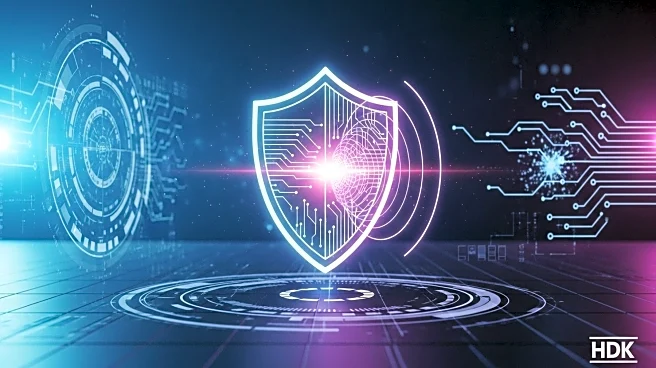What's Happening?
A massive DDoS attack has targeted several major gaming platforms, including Steam, Xbox, PlayStation, Riot Games, and Epic Games. The attack, which occurred on October 6, led to widespread outages and disconnection issues across these services. Riot Games reported game disconnection issues on its League of Legends and Valorant status pages, while Steam experienced a brief outage. The attack is speculated to have been launched via the Aisuru botnet, known for generating record-breaking bandwidth during DDoS attacks. Riot Games has acknowledged the network issues and is working to resolve them, temporarily disabling ranked queues in some regions and compensating for ranked points loss.
Why It's Important?
The DDoS attack highlights vulnerabilities in the infrastructure of major gaming platforms, potentially affecting millions of users worldwide. Such attacks can disrupt gaming experiences, leading to financial losses for companies and frustration among players. The incident underscores the need for enhanced cybersecurity measures to protect against increasingly sophisticated attacks. Companies like Riot Games are taking proactive steps to mitigate the impact, but the event serves as a reminder of the ongoing challenges in maintaining network stability in the face of cyber threats.
What's Next?
Gaming companies are likely to invest in stronger cybersecurity defenses to prevent future attacks. The industry may see increased collaboration among companies to share information and strategies for combating DDoS attacks. Players can expect temporary disruptions as companies work to restore normal service and implement protective measures. The incident may also prompt discussions on the need for regulatory frameworks to address cybersecurity in the gaming sector.
Beyond the Headlines
The attack raises ethical questions about the motivations behind such cyber threats, often seen as demonstrations of power or capability. It also highlights the cultural impact of gaming as a major form of entertainment, where disruptions can affect social interactions and leisure activities. Long-term, the event could influence how companies approach cybersecurity, prioritizing resilience and rapid response strategies.









